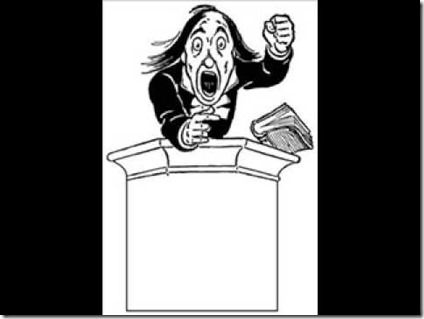 C.S. Lewis once spoke about the difficulty of sustaining worship. Worship by it’s very nature is a looking outside of ourselves. As soon as we start thinking about worship we end up not worshipping, this is how Lewis said it:
C.S. Lewis once spoke about the difficulty of sustaining worship. Worship by it’s very nature is a looking outside of ourselves. As soon as we start thinking about worship we end up not worshipping, this is how Lewis said it:
The perfect church service would be the one we were almost unaware of; our attention would have been on God. But every novelty prevents this. It fixes our attention on the service itself; and thinking about worship is a different thing than worshipping.
I was thinking about that Lewis quote recently while thinking through this address by John Piper on The Gravity and Gladness of Preaching. Piper is trying to make an argument for a seriousness to our preaching that conveys both the gladness and happiness and joy that we have in Christ but which moves away from frivolity or levity.
I’ve gleaned so much from John Piper over the years. I believe his blood-earnestness in preaching has had such a great impact upon me. The seriousness with which he considers the glory of God is helpful and challenging. And that is, I believe, what Piper is attempting to communicate in this lecture on preaching.
But there is something which I’ve observed among those of us who got our preaching legs while being immersed in the Reformed evangelicalism of Piper. It’s a particular tone, a way of organizing the service, a way of carrying ourselves with “blood-earnestness” but a seriousness that is more of a mask than that which comes from having been through the fire.
To put this another way, the blood-earnestness that accompanies powerful preaching doesn’t come from a fixation on blood-earnestness. That’s why I think of that Lewis quote. If we fixate upon the tone of the service—stamping out laughter and mirth—making sure we have the proper atmosphere of being around the holy, we’ll never arrive at anything more than contrived stillness. Because when you focus upon being blood-earnest you’re no longer really preaching.
When he was laboring to discern whether or not he was called to the ministry, John Newton, put together some of his thoughts upon preaching:
I do not think either sourness or gloominess become a preacher…True gravity is far from these and is a temperament of behavior arising from a fixed persuasion of the presence of God, the value of souls, the shortness of time, the influence of example, the love of mankind and the vastness and reality of eternal things, all impressed upon the mind together. (Newton, 180)
I’m not saying that Newton and Piper are necessarily disagreeing. But what I am saying is that Piper’s disciples would do well to hear this word of Newton. We don’t arrive at gladness or gravity by making either of them our goal in preaching. They arise from other things.
Focus upon the glory of Christ, aim to love your people and to honor Christ while doing so, and you’ll have plenty of experiences where the Spirit rests upon your congregation in such a way that a holy hush falls upon them. That is Newton’s point.
Dig deep in Jesus and the atmosphere will take care of itself.


